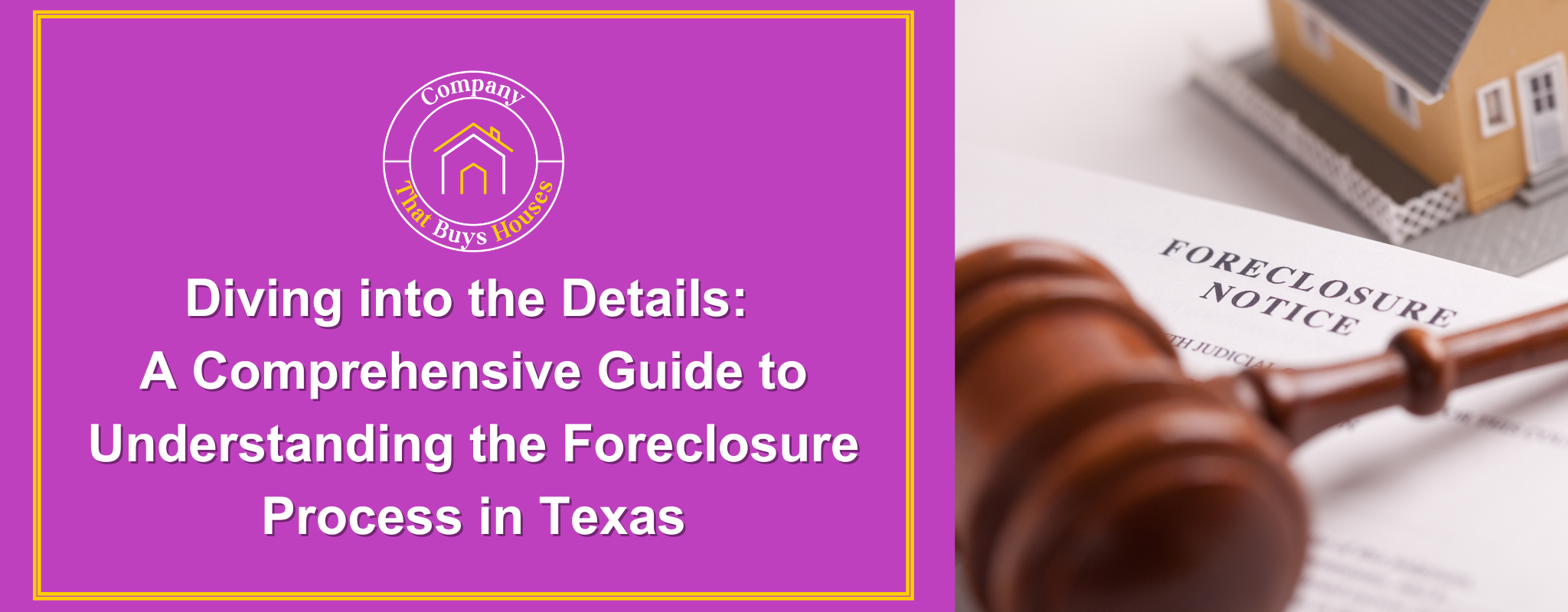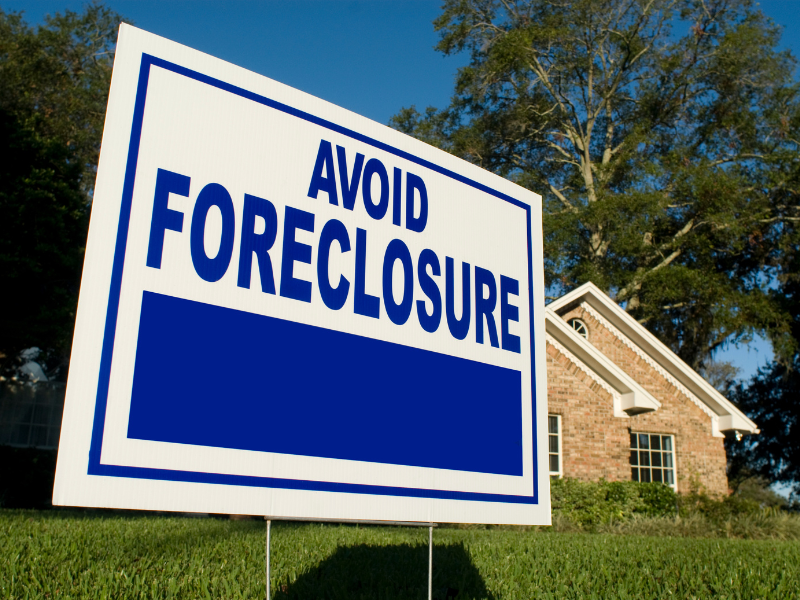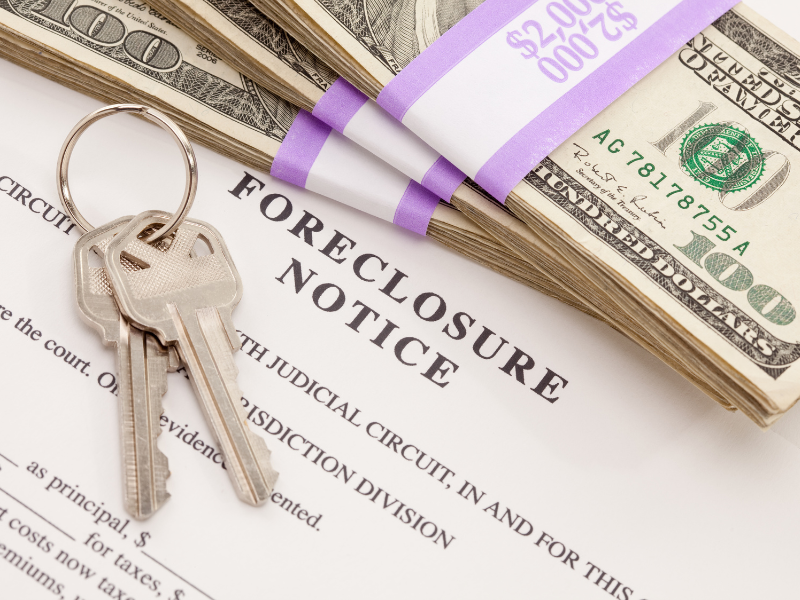
Understanding The Foreclosure Process In Texas
The eviction process can be hard to understand and handle for homeowners in Texas who are having trouble paying their bills. You need to know about the different deadlines to complete the process smoothly.
In Texas, most loans are handled without going to court. This means the lender doesn’t have to go through the court system. Foreclosures usually take between 60 and 90 days from the first missed payment to the final sale of the property. This can shorten the time it takes to go through the process.
But there are a lot of steps and letters that must be sent out before a foreclosure can happen. This gives homeowners time to look into other options, like loan modifications or short sales. Homeowners can make smart choices and keep their homes from foreclosure if they know these dates and possible options.
TABLE OF CONTENTS
- How Many Missed Mortgage Payments Before Facing Foreclosure?
- When Can A Lender Legally Start The Foreclosure Process?
- The Timeline For Completing A Foreclosure In Texas
- A Step-by-step Guide To The Stages Of Foreclosure
- Lengthy Legal Battles: How Long Does A Foreclosure Take In Texas?
- Exploring Ways To Halt Or Delay The Foreclosure Process
- Protecting Your Home: How To Prevent Foreclosure
- Navigating Judicial Vs. Non-judicial Foreclosures In Texas
- Strategies For Getting Out Of A Foreclosure Once It Begins
- How Long Can You Not Pay Your Mortgage Before Foreclosure In Texas?
- How Long Does It Take For A Bank To Foreclose On A House In Texas?
- What Is The Foreclosure Timeline In Texas?
- How Do I Stop A Foreclosure In Texas?
How Many Missed Mortgage Payments Before Facing Foreclosure?

A scary thought for many Texas homeowners is that they may have to go through foreclosure if they fall behind on their mortgage payments. But after how many late payments does a person have to worry that they might lose their house? To find the answer, you must know how long it takes to file for default in Texas.
If a homeowner misses three or more mortgage payments in a row, the lender can usually start the default process by sending a Notice of Default. This timeline can change, though, based on things like the type of loan and any possible options for deferment.
Because of this, homeowners need to know their specific position and take action to avoid missing too many mortgage payments and losing their homes to foreclosure.
When Can A Lender Legally Start The Foreclosure Process?
When someone in Texas gets behind on their mortgage payments, the lender can legally start the foreclosure process. State law says the lender must first give the borrower written notice of default and plan to accelerate the loan. This gives the borrower at least 20 days to fix the default.
In this amount of time, if the renter doesn’t make up the late payments, the lender can sue to start the foreclosure process. Loan companies must, however, give borrowers at least 21 days’ notice before going to court to cancel an account.
This gives homeowners a chance to get help or look into other choices before they might have to leave their homes. Homeowners in Texas need to know their rights and deadlines for eviction so they can take the right steps and maybe keep their homes.
The Timeline For Completing A Foreclosure In Texas

In Texas, the time to finish a foreclosure depends on several things. Usually, the process starts when a homeowner is late on their mortgage payments.
The lender will then send a letter of default to the homeowner. This gives them time to make their payments, or the house will be taken away through foreclosure. This warning needs to be sent at least 20 days before the big sale in Texas.
The lender can sue the homeowner and get a court order for foreclosure if the homeowner cannot repair the failure. In Texas, this process can take between 60 and 90 days.
After getting the court order, there will be a public sale, usually 21 days after the order is given. The property goes into the lender’s inventory if it doesn’t sell at auction. The lender may then choose to sell it in some other way, such as through a real estate agent or straight to a buyer.
People in Texas facing foreclosure should be aware of these dates and, if necessary, get legal help.
A Step-by-step Guide To The Stages Of Foreclosure
For people in Texas with money problems, the eviction process can be hard to understand and handle. You need to know about the different foreclosure steps to complete the process smoothly.
The first step is the pre-foreclosure phase. This is when the lender sends a notice of default to the homeowner. After this, there is a grace time when the homeowner can make up any payments they missed.
If this isn’t done, the land is auctioned and bought by the person who bids the most. Lastly, if the house doesn’t sell at auction, it returns to the bank and can be bought at a public sale or through a real estate agent.
Homeowners can prepare for what’s to come in this difficult process by knowing these steps and getting help from a professional.
Lengthy Legal Battles: How Long Does A Foreclosure Take In Texas?

In Texas, foreclosure timelines can be long and complicated, often leading to homeowners fighting in court for a long time. The process can take anywhere from 120 days to more than a year, based on things like how willing the lender is to negotiate, how quickly the borrower responds to foreclosure notices and any delays that might happen in court.
Texas is also a “non-judicial foreclosure state,” which means the lender doesn’t have to go through the courts to take back a property. This can speed up the process, but it also means that renters don’t have many ways to fight foreclosure.
If a homeowner in Texas faces foreclosure, they must know their rights and choices to avoid a long and stressful court case.
Exploring Ways To Halt Or Delay The Foreclosure Process
If you live in Texas and are facing foreclosure, you should know about the different things you can do to stop or slow down the process. Asking your mortgage lender for a forbearance is one choice. This lets you temporarily stop making payments or pay less for a certain time.
Another option is filing for bankruptcy, which can immediately stop eviction. You might also be able to work out a loan modification with your lender, which would change the terms of your mortgage so that you can make the payments more easily.
A foreclosure defense lawyer can also help you look for legal options and possible holes in the system that might delay or stop the sale. Texas homeowners in danger of losing their homes to foreclosure must know what they can do and act quickly to protect them.
Protecting Your Home: How To Prevent Foreclosure

For Texas homes, foreclosure can be a scary and overwhelming process. It’s important to know the steps and due dates if you want to keep your home from being taken on.
Keeping up with your mortgage payments is key to keeping your home from foreclosure. Taking action and making payments on time can help you escape foreclosure in a big way.
Keeping the lines of communication open with your banker and asking for help if you have money problems can also help you avoid foreclosure. Another important thing is to know the rules and laws about foreclosure in Texas and any tools or programs that can help people who are in danger of losing their homes.
You can keep your home from foreclosure by following these steps and learning more about the process.
Navigating Judicial Vs. Non-judicial Foreclosures In Texas
It can be hard for homeowners in Texas to figure out how the eviction process works. Whether the sale is judicial or non-judicial is one of the most important things that can greatly affect how long it takes.
These two types of foreclosures are legal in Texas, but the rules and steps differ greatly. In a judicial default, the lender must go to court and file a lawsuit to get a foreclosure order.
In non-judicial foreclosures, the seller follows steps set out in the deed of trust to start and finish the foreclosure. This process usually takes longer and is more complicated. Homeowners in Texas facing foreclosure need to know these changes and their rights to get through this tough situation successfully.
Strategies For Getting Out Of A Foreclosure Once It Begins

People who own homes can have difficulty getting out of foreclosure once it starts. However, several things can be done to stop or slow the foreclosure process. This would give the homeowners more time to make payments they missed or sell their house.
You could talk to the lender and try to work out a payback plan or change the loan terms. Another option is to file for bankruptcy, which can immediately stop eviction.
You might also find it helpful to get help from a housing counselor or lawyer. They can advise and maybe even help you deal with the lender. Also, looking into options like borrowing or selling the house through a short sale could be good choices.
People in Texas facing eviction should know their rights and look into their options for getting out of the situation as soon as possible.
How Long Can You Not Pay Your Mortgage Before Foreclosure In Texas?
Regarding Texas default timelines, homeowners need to know what will happen if they fall behind on their mortgage payments. Lenders in this state must send a letter of default after just one late payment.
People behind on their payments have 20 days to make up the difference or face a foreclosure sale. It could only take sixty days for the homeowner to lose their home if nothing is done within the process.
But some rules let homeowners slow down the process and maybe even save their homes. For example, they can ask the lender to meet with them for mediation. Texas homeowners should learn about these deadlines and choices if they don’t want to lose their houses to foreclosure.
How Long Does It Take For A Bank To Foreclose On A House In Texas?

People who own homes in Texas need to know the steps and times needed for foreclosures. The process can usually take anywhere from 60 days to a few years, but it depends on things like the type of eviction and any court cases that may come up.
The most common type of eviction in Texas is non-judicial, and it usually takes between 60 and 90 days to finish. However, the process can take a lot longer if the homeowner fights the foreclosure or there are court issues.
To successfully get through the complicated Texas foreclosure process, people must know their rights and talk to an experienced lawyer.
What Is The Foreclosure Timeline In Texas?
Texas homes who are going through the foreclosure process may feel scared and overwhelmed. It’s important to know how long this process takes so you can make smart choices that might keep your home from going into foreclosure.
In Texas, the time it takes to go through eviction varies by county but is usually between 60 and 120 days. This timeline starts when the borrower doesn’t make their first mortgage payment and ends when the house is auctioned.
However, several things can change this timeline, such as filing for bankruptcy or court delays. It is important for homeowners to learn about these deadlines and, if necessary, get legal help to get through this complicated process.
How Do I Stop A Foreclosure In Texas?
If you’re a homeowner in Texas who might lose your home to foreclosure, you should know how long the process takes and what you can do to stop it. The first thing you should do is get help right away from a foreclosure lawyer or housing expert.
Texas law says the foreclosure process can start as soon as 21 days after the borrower gets a default letter. You can legally try to slow down or stop the process by filing for bankruptcy or requesting a loan change.
To stop a sale in Texas, you must take action and know your rights and choices.
Related Posts:
How To Become Administrator Of Estate In Texas
How Long Does An Eviction Process Take In Texas
Can Medical Bills Take Your House In Texas
| FORECLOSING | MORTGAGE LOAN | TYPES OF LOANS | DEFAULTED | LOAN DEFAULT | AUCTIONED |
| PROPERTIES | LIBRARY | LOSS MITIGATION | CASH | LIENHOLDER | TAX |
| TAXES | MONEY | LAW LIBRARY | INFORMATION | HOME EQUITY | FEES |
| EQUITY | COURTHOUSE | TRUSTEE | STATUTE | CERTIFIED MAIL | REFINANCE |
| REAL PROPERTY | REALTOR | REAL ESTATE LAW | COUNTY CLERK | MORTGAGE-SERVICER | MORTGAGE SERVICERS |
| MAILED | LATE FEE | LANDLORDS | JUDGMENT | HOME EQUITY LOAN | |
| DISCLAIMER | COMPLAINT | SELL THE PROPERTY | WITH THE COUNTY CLERK | TO SELL THE PROPERTY |
![Trustworthy Cash Home Buyer [market_city] [market_state]](https://image-cdn.carrot.com/uploads/sites/75713/2024/01/Trustworthy-Cash-Home-Buyer.png)
